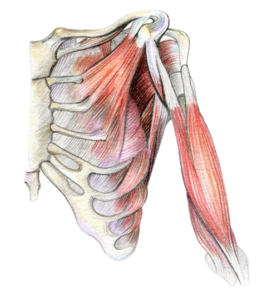Atrioventricular Fistula Treatment
An Atrioventricular fistula is an anomalous linkage between an artery and a vein. In the usual circulation, blood moves from arteries to capillaries, delivering nutrients and oxygen to body tissues, and subsequently flows into veins. However, in the presence of an atrioventricular fistula, blood directly diverts from an artery into a vein, bypassing certain capillaries in the process.

Symptoms
Signs and symptoms of arteriovenous fistula may encompass:
Visible, Purplish, Bulging Veins: These veins, akin to varicose veins, become apparent through the skin’s surface.
Swelling in the Arms or Legs: An affected limb may exhibit noticeable swelling.
Decreased Blood Pressure: As blood flow is diverted through the fistula, it can lead to lowered blood pressure.
Fatigue: Reduced oxygen delivery to body tissues can result in increased fatigue.
Heart Failure: In severe cases, heart failure may develop due to the additional stress placed on the heart.
A substantial arteriovenous fistula within the lungs, known as a pulmonary arteriovenous fistula, is a grave condition and can induce:
Bluish Skin Tinge: The skin may take on a bluish hue due to diminished oxygen levels.
Finger Clubbing: Fingertips can enlarge and become more rounded than usual.
Coughing Up Blood: Hemoptysis, or coughing up blood, may occur in response to the fistula’s impact on pulmonary circulation.
An arteriovenous fistula located in the gastrointestinal tract can potentially result in bleeding within the digestive system.
When to access Medical Care
Small arteriovenous fistulas found in the legs, arms, lungs, kidneys, or brain often remain asymptomatic and typically require no treatment beyond periodic monitoring by your healthcare provider. In contrast, large arteriovenous fistulas can lead to noticeable signs and symptoms.
Determinants of risk
Cardiac asthma is primarily associated with underlying heart conditions, especially congestive heart failure. Risk factors for developing cardiac asthma are generally the same as those for heart failure. These risk factors include:
Age: The risk of heart failure, and by extension, cardiac asthma, increases with age, particularly among older adults.
High Blood Pressure (Hypertension): Uncontrolled high blood pressure can lead to heart muscle damage, increasing the risk of heart failure and cardiac asthma.
Coronary Artery Disease (CAD): The presence of blocked or narrowed coronary arteries can reduce blood flow to the heart, potentially leading to heart failure.
Valvular Heart Disease: Conditions such as heart valve abnormalities or stenosis can strain the heart and contribute to heart failure.
Previous Heart Attacks: A history of heart attacks can weaken the heart muscle, increasing the risk of heart failure and cardiac asthma.
Diabetes: Uncontrolled diabetes can harm blood vessels and the heart muscle, elevating the risk of heart failure.
Obesity: Excess body weight can put additional strain on the heart and contribute to heart failure.
Smoking: Smoking is a risk factor for various heart-related conditions, including heart failure.
Alcohol and Substance Abuse: Excessive alcohol or substance abuse can damage the heart and increase the likelihood of heart failure.
Recovery process
Recovery duration varies, contingent on factors like patient characteristics, chosen procedure, and the extent of severity.
Why entrust your care to us?
At Steps 2 Cure, our foundation of trust is built upon several key pillars that ensure your confidence in our services and expertise. Our team comprises highly qualified professionals with extensive experience in their respective fields. Their knowledge and skills enable us to offer you the best possible care and solutions for your medical needs. We understand that each individual is unique, and so are their healthcare requirements.
That’s why we prioritize tailoring our treatments and approaches to your specific circumstances, ensuring that you receive care that is truly designed for you. You are at the heart of everything we do. Your comfort, concerns, and aspirations guide our efforts. Our compassionate approach ensures that you feel valued and supported throughout your healthcare experience.
To commence the treatment procedure, you can start by forwarding your questions via WhatsApp at (+91 9999652964) or by sending an email to care@steps2cure.com. Our team will ensure a swift response to your queries.
Still have a Query?
Your health and peace of mind matter to us, and we’re dedicated to addressing any inquiries you may have with care and expertise. Feel free to reach out.
Subscribe To Our Newsletter
Stay in touch with us to get latest news and special offers.

